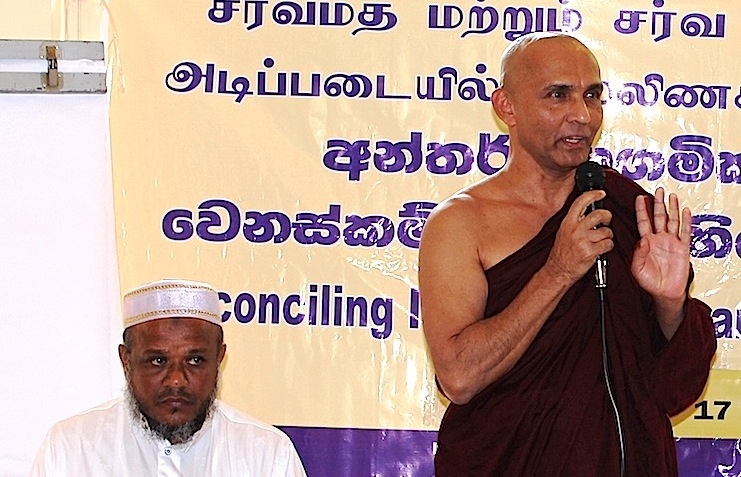The third phase of the Reconciling Inter Religious Differences project (RIID), supported by USAID, was introduced to members of the District Inter Religious Committees (DIRCS) of Batticaloa, Ampara, Kandy and Mannar.
A key objective of this project is to strengthen civil society activists to support the transitional justice process. Religious leaders who are trusted message bearers are well equipped to create awareness among the general population. In this regard the project facilitates religious clergy belonging to the four religions to identify war victims from each of their faiths and get them to share their stories to the larger gathering.
Among the issues that arose at the discussion was the local level mistrust between the Tamil and Muslim communities and the government, and between the communities themselves. This had impeded the plan to make Kalmunai into a municipality, as it would affect control over adjacent local government entities.
Another issue related to devolution of power at the provincial level with members of the different communities expressing concern that envisaged constitutional changes could be to the detriment of their own community. The need to have more facilitated dialogue, as occurred during these meetings, was emphasised as a way to build greater trust and sensitivity to the other.
At the orientation meeting in Kandy, NPC’s director Professor M.S. Mookiah explained the significance of the Geneva resolution on Sri Lanka.One participant said he thought South Africa’s Truth and Reconciliation Commission had not been successful and asked how the truth could be disclosed if the same process was adopted in Sri Lanka.
A participant in Kandy said it was vital to prevent a recurrence of the war by looking at issues such as youth dissatisfaction in the north and devolution of power while in Mannar, participants welcomed the government’s TJ process as a good opportunity to assist war survivors.

